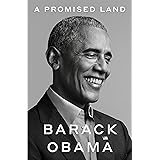Neu:
17,50€17,50€
Gewöhnlich versandfertig in 6 bis 7 Monaten
Versand
Amazon
Verkäufer
Amazon
Rückgaben
Retournierbar innerhalb von 30 Tagen nach Erhalt
Zahlung
Sichere Transaktion
Gebraucht kaufen 5,36 €

Lade die kostenlose Kindle-App herunter und lese deine Kindle-Bücher sofort auf deinem Smartphone, Tablet oder Computer – kein Kindle-Gerät erforderlich.
Mit Kindle für Web kannst du sofort in deinem Browser lesen.
Scanne den folgenden Code mit deiner Mobiltelefonkamera und lade die Kindle-App herunter.

Bild nicht verfügbar
Farbe:
-

-
-
- Herunterladen, um dieses Videos wiederzugeben Flash Player
 Hörprobe Hörprobe
Hörprobe Hörprobe 


Dem Autor folgen
OK
Decision Points Taschenbuch – Illustriert, 18. Oktober 2011
Kaufoptionen und Plus-Produkte
#1 NEW YORK TIMES BESTSELLER • In this candid and gripping memoir, President George W. Bush describes the critical decisions that shaped his presidency and personal life.
George W. Bush served as president of the United States during eight of the most consequential years in American history. The decisions that reached his desk impacted people around the world and defined the times in which we live.
Decision Points brings readers inside the Texas governor’s mansion on the night of the 2000 election, aboard Air Force One during the harrowing hours after the attacks of September 11, 2001, into the Situation Room moments before the start of the war in Iraq, and behind the scenes at the White House for many other historic presidential decisions.
For the first time, we learn President Bush’s perspective and insights on:
• His decision to quit drinking and the journey that led him to his Christian faith
• The selection of the vice president, secretary of defense, secretary of state, Supreme Court justices, and other key officials
• His relationships with his wife, daughters, and parents, including heartfelt letters between the president and his father on the eve of the Iraq War
• His administration’s counterterrorism programs, including the CIA’s enhanced interrogations and the Terrorist Surveillance Program
• Why the worst moment of the presidency was hearing accusations that race played a role in the federal government’s response to Hurricane Katrina, and a critical assessment of what he would have done differently during the crisis
• His deep concern that Iraq could turn into a defeat costlier than Vietnam, and how he decided to defy public opinion by ordering the troop surge
• His legislative achievements, including tax cuts and reforming education and Medicare, as well as his setbacks, including Social Security and immigration reform
• The relationships he forged with other world leaders, including an honest assessment of those he did and didn’t trust
• Why the failure to bring Osama bin Laden to justice ranks as his biggest disappointment and why his success in denying the terrorists their fondest wish—attacking America again—is among his proudest achievements
A groundbreaking new brand of presidential memoir, Decision Points will captivate supporters, surprise critics, and change perspectives on eight remarkable years in American history—and on the man at the center of events.
- Seitenzahl der Print-Ausgabe512 Seiten
- SpracheEnglisch
- HerausgeberCrown
- Erscheinungstermin18. Oktober 2011
- Abmessungen13.16 x 2.95 x 20.45 cm
- ISBN-100307590631
- ISBN-13978-0307590633
Kunden, die diesen Artikel angesehen haben, haben auch angesehen
Produktbeschreibungen
Über den Autor und weitere Mitwirkende
Leseprobe. Abdruck erfolgt mit freundlicher Genehmigung der Rechteinhaber. Alle Rechte vorbehalten.
Surge
Years from now, historians may look back and see the surge as a forgone conclusion, an inevitable bridge between the years of violence that followed liberation and the democracy that emerged. Nothing about the surge felt inevitable at the time. Public opinion ran strongly against it. Congress tried to block it. The enemy fought relentlessly to break our will.
Yet thanks to the skill and courage of our troops, the new counterinsurgency strategy we adopted, the superb coordination between our civilian and military efforts, and the strong support we provided for Iraq’s political leaders, a war widely written off as a failure has a chance to end in success. By the time I left office, the violence had declined dramatically. Economic and political activity had resumed. Al Qaeda had suffered a significant military and ideological defeat. In March 2010, Iraqis went to the polls again. In a headline unimaginable three years earlier, Newsweek ran a cover story titled “Victory at Last: The Emergence of a Democratic Iraq.”
Iraq still faces challenges, and no one can know with certainty what the fate of the country will be. But we do know this: Because the United States liberated Iraq and then refused to abandon it, the people of that country have a chance to be free. Having come this far, I hope America will continue to support Iraq’s young democracy. If Iraqis request a continued troop presence, we should provide it. A free and peaceful Iraq is in our vital strategic interest. It can be a valuable ally at the heart of the Middle East, a source of stability in the region, and a beacon of hope to political reformers in its neighborhood and around the world. Like the democracies we helped build in Germany, Japan, and South Korea, a free Iraq will make us safer for generations to come.
I have often reflected on whether I should have ordered the surge earlier. For three years, our premise in Iraq was that political progress was the measure of success. The Iraqis hit all their milestones on time. It looked like our strategy was working. Only after the sectarian violence erupted in 2006 did it become clear that more security was needed before political progress could continue. After that, I moved forward with the surge in a way that unified our government. If I had acted sooner it could have created a rift that would have been exploited by war critics in Congress to cut off funding and prevent the surge from succeeding.
From the beginning of the war in Iraq, my conviction was that freedom is universal—and democracy in the Middle East would make the region more peaceful. There were times when that seemed unlikely. But I never lost faith that it was true.
Financial Crisis
“Mr. President, we are witnessing a financial panic.”
Those were troubling words coming from Ben Bernanke, the mild-mannered chairman of the Federal Reserve, who was seated across from me in the Roosevelt Room. Over the previous two weeks, the government had seized Fannie Mae and Freddie Mac, two giant housing entities. Lehman Brothers had filed the largest bankruptcy in American history. Merrill Lynch had been sold under duress. The Fed had granted an $85 billion loan to save AIG. Now Wachovia and Washington Mutual were teetering on the brink of collapse.
With so much turbulence in financial institutions, credit markets had seized up. Consumers couldn’t get loans for homes or cars. Small businesses couldn’t borrow to finance their operations. The stock market had taken its steepest plunge since the first day of trading after 9/11.
As we sat beneath the oil painting of Teddy Roosevelt charging on horseback, we all knew America was facing its most dire economic challenge in decades.
I turned to the Rough Rider of my financial team, Secretary of the Treasury Hank Paulson, a natural leader with decades of experience in international finance.
“The situation is extraordinarily serious,” Hank said.
He and the team briefed me on three measures to stem the crisis. First, the Treasury would guarantee all $3.5 trillion in money market mutual funds, which were facing depositor runs. Second, the Fed would launch a program to unfreeze the market for commercial paper, a key source of financing for businesses across the country. Third, the Securities and Exchange Commission would issue a rule temporarily preventing the short-selling of financial stocks.
“These are dramatic steps,” Hank said, “but America’s financial system is at stake.”
He outlined an even bolder proposal. “We need broad authority to buy mortgage-backed securities,” he said. Those complex financial assets had lost value when the housing bubble burst, imperiling the balance sheets of financial firms around the world. Hank recommended that we ask Congress for hundreds of billions to buy up these toxic assets and restore confidence in the banking system.
“Is this the worst crisis since the Great Depression?” I asked.
“Yes,” Ben replied. “In terms of the financial system, we have not seen anything like this since the 1930s, and it could get worse.”
His answer clarified the decision I faced: Did I want to be the president overseeing an economic calamity that could be worse than the Great Depression?
I was furious the situation had reached this point. A relatively small group of people—many on Wall Street, some not—had gambled that the housing market would keep booming forever. It didn’t. In a normal environment, the free market would render its judgment and they could fail. I would have been happy to let them do so.
But this was not a normal environment. The market had ceased to function. And as Ben had explained, the consequences of inaction would be catastrophic. As unfair as it was to use the American people’s money to prevent a collapse for which they weren’t responsible, it would be even more unfair to do nothing and leave them to suffer the consequences.
“Get to work,” I said, approving Hank’s plan in full. “We are going to solve this.”
I adjourned the meeting and walked across the hallway to the Oval Office. Josh Bolten, Counselor Ed Gillespie, and Dana Perino, my talented and effective press secretary, followed me in. Ben’s historical comparison was still echoing in my mind.
“If we’re really looking at another Great Depression,” I said, “you can be damn sure I’m going to be Roosevelt, not Hoover.”
Produktinformation
- Herausgeber : Crown; Reprint Edition (18. Oktober 2011)
- Sprache : Englisch
- Taschenbuch : 512 Seiten
- ISBN-10 : 0307590631
- ISBN-13 : 978-0307590633
- Abmessungen : 13.16 x 2.95 x 20.45 cm
- Amazon Bestseller-Rang: Nr. 2,546,922 in Bücher (Siehe Top 100 in Bücher)
- Nr. 1,833 in Biografien historischer Persönlichkeiten aus den USA
- Nr. 3,410 in Biografien von Präsidenten & Staatsoberhäupter
- Nr. 6,624 in Staatsführung
- Kundenrezensionen:
Informationen zum Autor

Entdecke mehr Bücher des Autors, sieh dir ähnliche Autoren an, lies Autorenblogs und mehr
Kundenrezensionen
Kundenbewertungen, einschließlich Produkt-Sternebewertungen, helfen Kunden, mehr über das Produkt zu erfahren und zu entscheiden, ob es das richtige Produkt für sie ist.
Um die Gesamtbewertung der Sterne und die prozentuale Aufschlüsselung nach Sternen zu berechnen, verwenden wir keinen einfachen Durchschnitt. Stattdessen berücksichtigt unser System beispielsweise, wie aktuell eine Bewertung ist und ob der Prüfer den Artikel bei Amazon gekauft hat. Es wurden auch Bewertungen analysiert, um die Vertrauenswürdigkeit zu überprüfen.
Erfahren Sie mehr darüber, wie Kundenbewertungen bei Amazon funktionieren.-
Spitzenrezensionen
Spitzenbewertungen aus Deutschland
Derzeit tritt ein Problem beim Filtern der Rezensionen auf. Bitte versuche es später erneut.
Es war aufschlussreich, die Entstehung politischer Entscheidungen mitzuerleben, man erhält Einsicht in die politischen Abläufe in USA und die hohe Verantwortung, die mit dem Amt des Präsidenten verbunden ist. Dies ist keine Rechtfertigungsschrift und auch keine Eigen-Huldigung. Vielmehr wird amerikanische Politik erzählt aus der Sicht einer handelnden Person. George Walker Bush hat das Recht, gehört zu werden. Wer sein eigenes Amerika-Bild objektivieren will, sollte sich die Mühe machen ... und nicht nur dumme Sprüche nachplappern.
Englisch ist für mich eine Fremdsprache - aber ich bin nicht so schlecht. Ich konnte das Buch flüssig lesen und die meisten mir unbekannten Ausdrücke erklären sich aus dem Zusammenhang. Ein lesenswertes Buch.
Bush beschreibt wichtige Stationen seines Lebens / seiner Regierungszeit nicht ohne Selbstkritik und mit einer Prise
Humor die ich in einem politischen Buch nicht erwartet hattte. Man hat den Eindruck, das Bush vor einem Sitz und sein Leben erzählt. Dies gibt eine ganz besondere Athmosphäre.
Man erhält Einbick in die Abläufe seines Lebens und kann gut die Beweggründe nachvollziehen die ihn zu seinen Entscheidungen bewegt haben.
Ich kann es jedem interessierten guten Herzens empfehlen. Mir hat die Lektüre viel Freude bereitet. Lesenswert!
Bush versucht sich leider für Unentschuldbares zu entschuldigen und führt den Leser bewusst zu falschen Schlüssen über die Geschichte.
Als Buch gebe ich 4-5 Sterne, aber die Bedeutung des Inhalts gibt doch eine klare Tendenz zu 4 Sternen.
Spitzenrezensionen aus anderen Ländern
President Bush wisely took a cue from the wonderful memoirs of U.S. Grant, and avoided a boring self-congratulatory book like Obama, Clinton and most athletes, celebrities and other narcissists. Instead, the extremely well-read Texan told the story of his time in the White House by "focusing on the most important part of the job: making decisions."
Good idea, as while the book is therefore not chronological, the 43rd president offers us a `thematic flow,' providing for a balanced, smooth read. Thankfully, he puts his ego aside (imagine that) and explains his circumspect decisions, maturely admits his mistakes, rarely castigating anyone but himself or his staff, just as he's kindly done in his post-presidency, unlike many others past leaders (see Carter, Jimmy).
In fact, I think President Bush is almost too contrite and too excruciatingly 'fair' to his critics, who never apologized for the inappropriate way they treated him. Just as the US military does more for true PEACE on one afternoon than the UN in 65 futile years, Bush, on his worst day, is a far better man (ask the tens of millions whose lives he saved with his AIDS & Malaria funding work in Africa) than the elite media dunderheads on their 'best' day.
Pres. Bush also writes eloquently on behalf of others' mistakes, while, again, scarcely mentioning the unfair deceit, dangerous lies and blatant hypocrisy of his detractors (NY Times, Kerry, Obama, Hillary, Reid, philandering John Edwards, et al, especially on life/death matters such as OEF & OIF).
This president had his shortcomings, but overall, as more and more folks have learned considering the past two disastrous years, HE was an American LEADER:
Humble, inquisitive, well-versed on meaningful matters like history, open-minded, intellectually curious, self-reflective, honest, balanced, principled, thick-skinned, thorough, tolerant to a fault, compromising yet decisive in the end, reached across the aisle instead of ignoring or excoriating his opponents, open-minded yet unwavering when necessary, deeply patriotic, extremely compassionate, pious, understood good vs. evil, loved freedom and children, cared about Americans and trusted them to make individual decisions in lieu of the Ruling Class stooges, listened, made tough decisions and, most importantly, 'stubborn' in a GOOD way. (i.e. cautious yet committed to his duty to protect Americans from harm, which some Republicans, most Americans, and nearly ALL Democrats fatuously abandoned or forgot about in the years following 9/11/01 -- mostly for political expediency).
Compare that to the current occupant at 1600 Penna. Does he reflect ANY of those positive traits? Even if you disagree with some of what I wrote about GWB, the majority of those adjectives accurately describe him.
I personally did not vote for the man in 2000. Fresh out of four years of academic theft/brainwashing (aka college), it was one of the biggest mistakes of my life. Had Al Gore been president on Sept. 11, 2001, or JF Kerry won in 2004, many of us would be dead. Period.
Mr. Bush became my president due to his perfect performance after the worst terror attack on US soil in our proud history. He had the toughest job since Lincoln -- and unlike Lincoln he had no warning -- and performed admirably.
His petulant, disingenuous critics who, through their lies and name calling tore apart this country, should be ashamed.
Do yourself a favor and read President George W. Bush's informative book.
The writing puts the final confirmation of what Ed Luttwack noted in a Sept. 2008 in the UK's Prospect Magazine: We have a Truman for our Times.
If you don't understand why this is a perfect analogy, you probably won't want to read this important book either, and will continue to vote inapposite of America's proud history.
So as to reiterate, I, like most reasonable and sane people in a post 9/11 world, I truly miss this humble and mature LEADER.
Happy Thanksgiving, and G-d Bless America!




